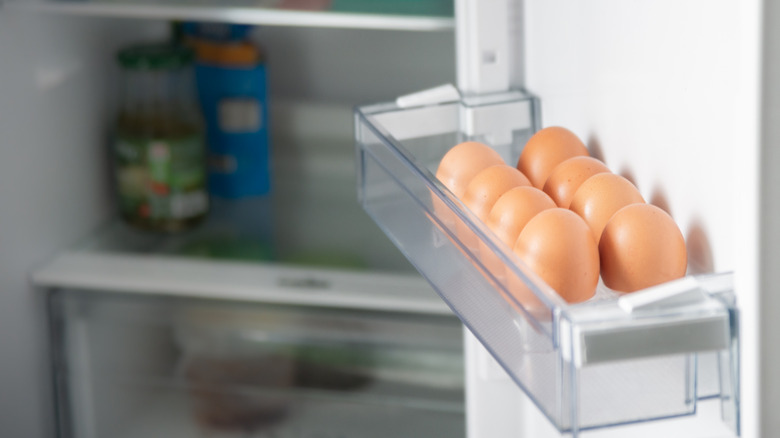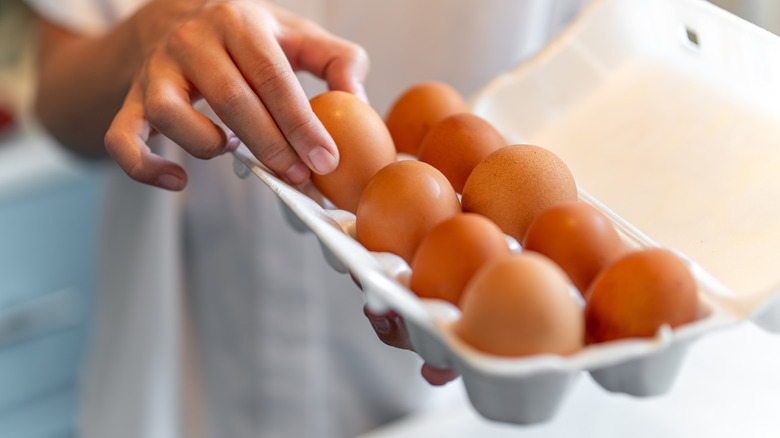Why You Shouldn't Store Eggs In Your Refrigerator Door
Organizing your fridge to ensure you're getting the most out of your groceries can feel like an intense game of Tetris. However, it does get easier with practice and know-how. One thing to keep in mind is that your eggs are an item that should be kept away from the refrigerator door. If you've been placing your eggs in the door for safekeeping or easy access, prepare for change, for you are about to get some serious egg insight.
Store-bought or washed eggs should always be kept in a fridge with a temperature set at a consistent 40 degrees Fahrenheit or below. When the fridge door is frequently opened and shut, maintaining this temperature becomes difficult. It can also lead to cracked eggs — in short, keeping your eggs in the door is a food storage mistake you'll want to avoid.
If your eggs aren't store-bought or washed — like eggs from backyard chickens — they can be stored at room temperature for around two weeks. If you don't think you'll eat them in that window, you can move them to the fridge, still unwashed, and they'll last up to three months. Just be sure to write the date you got the eggs somewhere on the carton. Kicking the habit of storing eggs in your refrigerator door is a great start, but there's another important step to perfect egg storage that's worth knowing.
Other important egg storage tips
Most of us open a carton of eggs once in the grocery store to check for cracks and then don't open it again until we're ready to cook. But changing the way your eggs sit in the carton will help them last longer. Before you put them in the fridge, turn your eggs upside down (or pointed side down) in the carton. Of course, this may seem odd since the eggs don't come packaged this way, but the large end of an egg has an air sac that expands over time.
As the egg sits in your refrigerator, bacteria can seep into the pores. When the large side of the egg is downward, the air sac will rise to the top and bring bacteria closer to the egg yolk. When the pointed side of the egg is faced downward, the air sac remains in one place, and bacteria doesn't pose as much of a risk to the yolk. Make sure you also flip your eggs in the carton, as it provides a soft, safe space to protect those precious morsels, and it already has a suggested use-by date printed on the carton. (Just don't add any eggs from different grocery trips to that carton).
Turning over your eggs in the carton, keeping them away from the door, and storing them in a consistent temperature will help them last much longer than they might otherwise. And, just to be safe, it's best to also learn some of the other ways to tell if your eggs are still good before you consider yourself a true egg master.

